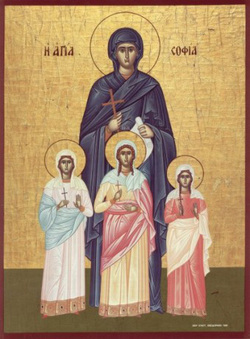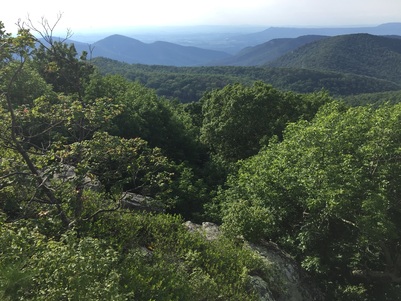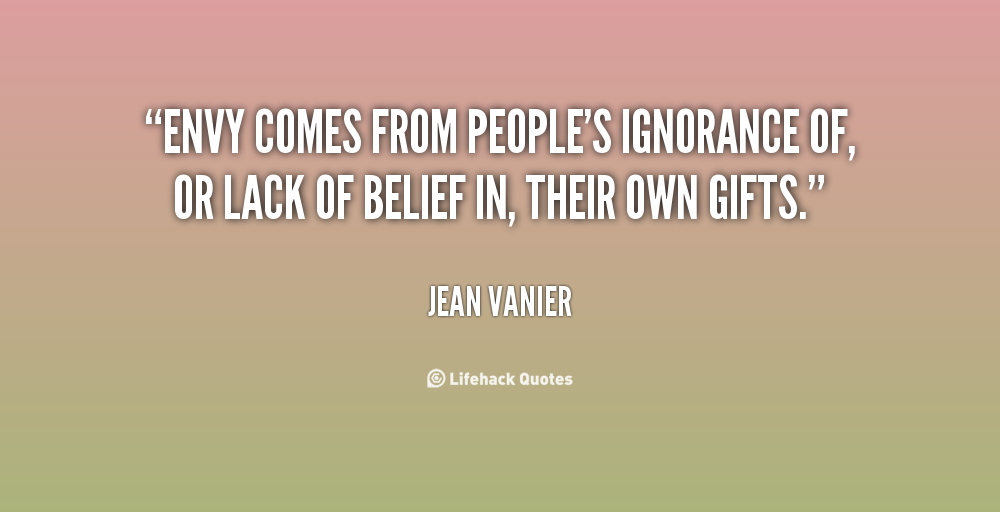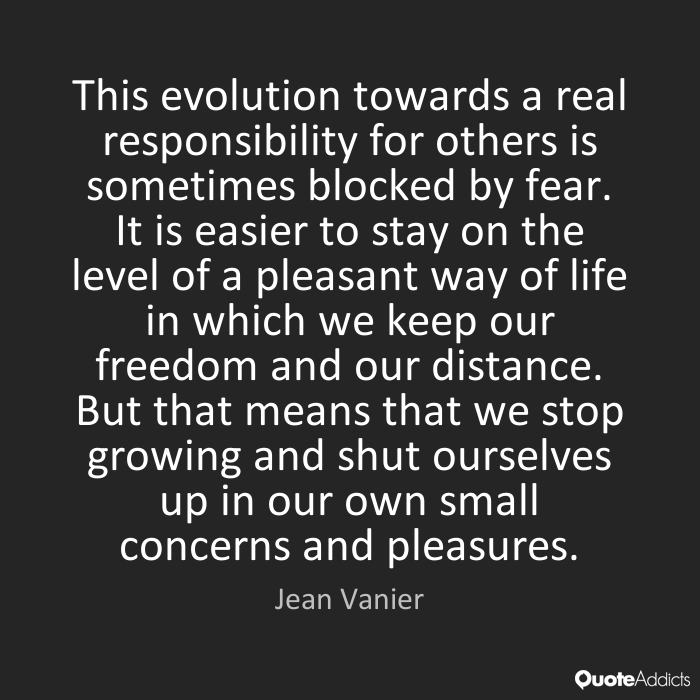|
This week's text is 2 Timothy 1:1-14 and Psalm 37:1-9. If ever there was a time to counter the voices of fear in our world, it's now. What does it mean for us to embrace, love, power and self-control in a world filled with fear, vulnerability and immediate impulses? I was looking for a graphic for my bulletin and came across a quote from Jean Vanier, the founder of L'Arche communities. He is quoted as having said, "Every human being is a mixture of light and darkness, trust and fear, love and hate." I've gotta be honest, the rhetoric of fear during these months that lead up to national elections is almost unbearable for me. The partisan hate speech and the lack of listening becomes a constant voice around us in our social media feeds. I want to believe that amidst all of this, if I still myself, I can find that mixture that he is speaking of. I can see in myself light and darkness, trust and fear, love and hate so that I can find the light and darkness, trust and fear, love and hate in the person in front of me. Otherwise, I'm living on my own island, believing that my thoughts, my ethics, my ideals are better, wiser than the "other." This admonishment to Timothy to "revive" the gift that's been given to you," seems like part of the key of recognizing who we really are. Underneath all of the darkness, fear and hate, we all have this tremendous reservoir of light, trust and love from which to draw every day in every way. Why then does it so often feel like our reservoirs are so empty or so polluted? This gift that we have, the one that Timothy had - he's later told in verse 14 to protect this good thing that has been placed in your trust. Protect it, guard it. So then this gift, this reservoir within us of the gifts of God, someone what unique to us I'd imagine but also somewhat universal in the way they resemble the Spirit who gifts us, how do we both keep it safe and also revive it? To embrace, revive the light, trust and love within us requires that we reveal our vulnerability, our weakness. Committing our ways to the Lord, trusting God will act and make righteousness requires the ability to wait in the midst of uneasiness, chaos even. Being still before the Lord, waiting for God, choosing to leave anger behind, requires tremendous self-control. God did not give us a spirit of fear, but of power, love and self-control. Some touch down thoughts -
I'm interested in talking about the ways we run away from our feelings of vulnerability and fear. What are our "goto" addictions that numb the feeling of being out of control? How do we work to bring God into those moments, to remind us of the gift we have within us? And it's World Communion Sunday. This Timothy text would work really well as an All Saints' Day Text with the theme of faith passed down to us. On a global scale, what is the faith we are passing down to live beyond us?
0 Comments
This week's texts are Proverbs 8:22-31 and Colossians 1:15-20.  Lady Wisdom presented here with her daughters Faith, Hope and Love. Lady Wisdom presented here with her daughters Faith, Hope and Love. We're finishing up our fourth week of the Creation series, year C, carved out in September. And our congregation is trying a Multiple Sensory Worship Service for the first time this Sunday. The preaching moment is audacious... to think we can craft 1500 words that speak to a diverse community - old and young, male and female, rich and poor, formally educated or not, readers or not, all with diverse learning styles. And yet, I've written sermons that have reached the diversity in the room in ways that can only be due to Lady Wisdom (from the Proverbs text) and the presence of the first born of Creation, Jesus (from the Colossians text). There is a moment each Sunday before I walk out of my study, where a part of my mind simply lets go to the what will be. I have learned to hold the preaching moment with an open hand. My hand is open because the "word of God for the people of God" is meant for the people to eat it not framed for the people to see it. And the more my congregation grows in its diversity, the more I wonder how many are being nourished by the preaching moment? So once/month we're offering stations during the "sermon" time of the worship service. We're using the Season of the Spirit worship resource - which makes it easy actually. We will have three stations: I will lead a conversation in the sanctuary for those who don't want too much of a difference. In another room there will be a puppet show with Lady Wisdom as the main character. And folks will get to make their own puppets. In the third room, folks will reflect on VanGogh's starry night and have the opportunity to draw or paint or - well, I keep changing my mind on this one.  Christ creating the cosmos. Christ creating the cosmos. Each group gets 25 minutes to do their thing and then we're coming back together to learn from one another. So I've opened my hand a little wider yet, giving more control over to Lady Wisdom to speak to folks in her own way. I'm trusting that the Christ who was there at the beginning will be just as present as the humans in my congregation try to understand scripture together. I have two fears. I fear some will see this as ruining the preaching moment and I fear this experience will not nourish us. But then I remember that Lady Wisdom was the "master worker." She is the fore-woman overseeing how things come together. And I rest in this vulnerable notion that "all things hold together" in Christ. The texts this week are Psalm 29 and Luke 8:22-25 I can't possibly read Psalm 29 that continually uses the phrase "the voice of the Lord," without remembering this fantastic clip from the Newsroom. In the clip, the characters are preparing for a fictitious political debate based on the 2012 election cycle where Senator Michelle Bachman said that God told her to run for President. Maggie, one of the characters from the show is a Christian background and interprets Senator Bachman's claim to not just hear God speak but that she would then be a prophet of the Lord. Therefore, the first question in the presidential debate should be, "What does God's voice sound like?" Here's the clip: So, what do you think? What does God's voice sound like to you? Now both texts speak of God's voice - The Lord's voice is over the waters; it's powerful. It breaks cedars; it flashes flames. And the last line of Psalm 29 is a hope for peace, may God bring peace. And then Jesus speaks to the wind and the waves, "Silence, be still." If I had to answer the question, "what does God's voice sound like?" I think based on these two texts, I would have we know it by the resulting peace and stillness. It's like the saying, "you know something by its fruit." Fig trees produce figs, not apples. The voice of the Lord produces peace, stillness. It does not then produce strife, war, anxiety, worry, fretfulness. But if the voice is coming amidst strife, war, anxiety, worry and fretfulness - like a voice that speaks amidst a storm? Is it that the voice of the Lord cuts through (breaks the cedars) the rest of the noise of the storm? What do you think? What does the voice of the Lord sound like to you?  Japanese symbol for Ki Japanese symbol for Ki In the past several years, I've studied to become a Reiki Master. Reiki is a Japanese healing technique. Reiki can benefit all aspects of life: Mental (behavior modification, stress management, emotional release, depression), Physical (backaches, allergies, and other diseases), and even spiritual (discernment, forgiveness, and wisdom). Reiki is administered by "laying on hands." I bring it up because the word Reiki is made up of two Japanese words - Rei (life force) and Ki (energy). The symbol for Ki (same as Chi or Qi) is a pot of boiling rice. In the symbol there is the flame, the pot of rice and above it is steam. Ki is an alchemical production - energy produced through work. That is our energy I'm talking about. But what I'm drawn to is the steam above the water... The voice of the Lord is over the water - a resting energy above the working movement of the natural world. So again, what do you think? What does the voice of the Lord sound like? The text this week for t he "season of creation" is Psalm 104:14-23 and I'm pairing it here with Luke 12;22-31.  Shenandoah State Park, picture mine Shenandoah State Park, picture mine My husband and I have started binge watching Outlander on Starz. It's set in green, mountainous Scotland some two hundred years ago. The crowd of characters are highlanders hoping to regain control over their beloved Scotland. It's working for us because my husband loves history and I love the relationships that are building among the clans... oh, and there's time travel involved. I love time travel. But the thing I have to admit also about what is keeping me watching the show is the pace of life when life is lived off the land. Don't get me wrong... I never want to do that. I went camping early in our marriage and realized that for the mom, camping isn't a vacation because not only am I cooking, I'm having to drag water from a far away source and boil it in order to clean the dishes. My husband regularly admits that if he had to catch his food, he would most certainly be a vegetarian. But still, the pace, the expectation of what can get done today and what must wait until tomorrow has lured me in. The Psalmist often uses the images of creation as a way to root us, ground us to something bigger, strong, more solid. In this 104th episode of the Psalms, the grass, the trees, the high mountains, and the sun work side by side the cattle, people, birds, goats and lions. Combined with the work of the Lord, the water from heaven and the moon to mark the seasons and the darkness that causes all to rest, food is produced, wine is made, refuge and rest are found. This week as the children in the Northeast finally make their way back to school and the force of labor that nurtures and teaches them return to work. This week when churches begin their program year, some slower than others. This week when choirs start to rehearse again and meetings fall into their regularly scheduled places, this week might be a week that is good to remind us of the pattern of the earth beneath us and the sky above us.  Fig tree at my son and daughter in laws house - gonna make fig jam! Fig tree at my son and daughter in laws house - gonna make fig jam! In what ways does this earth and sky provide for you and me? Is there a way to stop and notice the pace of the natural world so that it might inform the pace of our actions and inaction? Short of drawing our water from a far away place, is there a way to establish a pace that resembles the pace of the earth? It's interesting to note that in our attempt to work longer hours, travel longer distances in shorter amounts of time, communicate faster, our beloved earth still takes the same amount of time to rotate each day. The sun and moon remain on the same schedule. They have not sped up. We have. I dare say that the tension we experience so often is because we are at odds with the natural world which is the only home we have. And thank God - imagine if we were given a chance to order the earth and its axis - the moon and its seasons? Yikes! I fear the pace we would set, the expectations we would assume. And I have to wonder if that's why I'm drawn to time travel. It's some dream of being able to alter the natural order of life as its been set out for me, for us. And perhaps that is why I'm delighted with this show that we are immersed in. She traveled in time... but not to the hustle of a future where I couldn't keep up but to a past that is somehow slowing me down. More thoughts ~
Outlander is not really a show you can use in worship but I'm enjoying it. Here's the book info. Worry and Anxiety are the top reason why people want to see me as their pastor. Having two texts that speak of the sufficiency and sovereignty of God, I wrote this piece about talking about mental health from the pulpit. |
Search this blog for a specific text or story:
I am grateful for
|

This work is licensed under a Creative Commons Attribution-NonCommercial-ShareAlike 3.0 Unported License.



